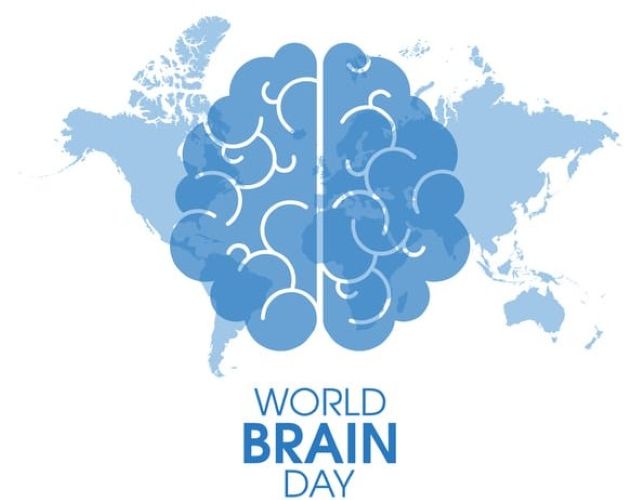BRAIN HEALTH BEGINS BEFORE BIRTH

Team L&M
World Brain Day 2025 (July 22) is being observed globally with the theme, “Brain Health for All Ages,” . It highlights the importance of brain health at every stage of life, from before birth through childhood, adulthood, and old age.
On this occasion, Dr. Samir Parekh, Senior Neurologist at Apex Group of Hospitals, Borivali, emphasised that brain health begins even before birth. Maternal care and nutrition during pregnancy play a crucial role in a child’s neurological development. “Throughout life, factors such as a balanced diet, regular exercise, mental stimulation, social connection, and effective management of chronic conditions are essential for preserving brain function,” Dr. Parekh says.
Neurological Disorders
Neurological disorders like stroke, epilepsy, dementia, and Parkinson’s disease continue to impact millions globally, leading to disability and a reduced quality of life. So, Dr. Parekh underlines the importance of early detection, lifestyle modifications, and timely treatment in reducing the burden of these conditions. He, therefore, urges everyone to adopt brain-healthy habits. These include regular health checkups, quality sleep, stress management, and staying mentally active. All this helps reduce the risk of neurological diseases and ensure a healthier, independent life.
“People often think of brain diseases only in terms of stroke or tumors. But in today’s world, the more silent killers are stress, burnout, and digital overload, especially among working professionals. Symptoms like lack of focus, irritability, sleep disorders, and forgetfulness are commonly ignored. But these are red flags, brain health is not optional, it’s essential,” says Dr Kailas Mirche, Senior Neurologist, CARE Hospitals, Hitec-city, Hyderabad.
Mental health challenges in corporate settings are escalating. Overexposure to screens, lack of rest, and constant mental load are rewiring brain functions negatively.“We are now seeing neurological issues in people as young as 30—linked purely to lifestyle and stress. A healthy brain isn’t just about avoiding diseases. It’s about thriving mentally, emotionally, and cognitively in your day-to-day life,” he adds.
Neurologists agree that high-functioning individuals across various fields tend to share a set of common brain-boosting habits. These include getting 7 to 8 hours of quality sleep each night, maintaining a balanced diet rich in B-vitamins, omega-3 fatty acids, and antioxidants, practicing regular meditation or mindfulness to manage stress, and following strong digital hygiene, such as setting clear boundaries for screen time and incorporating regular digital downtime.
Screen Time Matters
“Wearables, AI-powered cognitive tests, and brain-training apps are revolutionizing neuro-care. But excessive exposure to screens, multitasking, and social media addiction are hurting concentration and mental stability. Tech is a tool, not a substitute for human rest, connection, or thinking,” emphasized Dr. Kailas.
Parents and educators must pay special attention to children’s screen time. The early years of brain development are highly sensitive, and excess screen exposure can delay emotional regulation, attention span, and communication skills.
Brain-friendly foods
“Brain-friendly foods like walnuts, fatty fish, berries, and green leafy vegetables are more important than ever. Good nutrition is like high-octane fuel for your brain, it powers memory, mood, and learning,” Dr. Kailas advised.
World Brain Day is observed annually to raise awareness about brain health and neurological disorders. It’s a global initiative led by the World Federation of Neurology (WFN). It helps promote brain health and encourage preventative measures against neurological conditions. The day highlights the importance of understanding brain health and its impact on overall well-being throughout life.
World Brain Day is a powerful reminder that brain health is a lifelong priority, essential for personal well-being and for building a healthier society.

